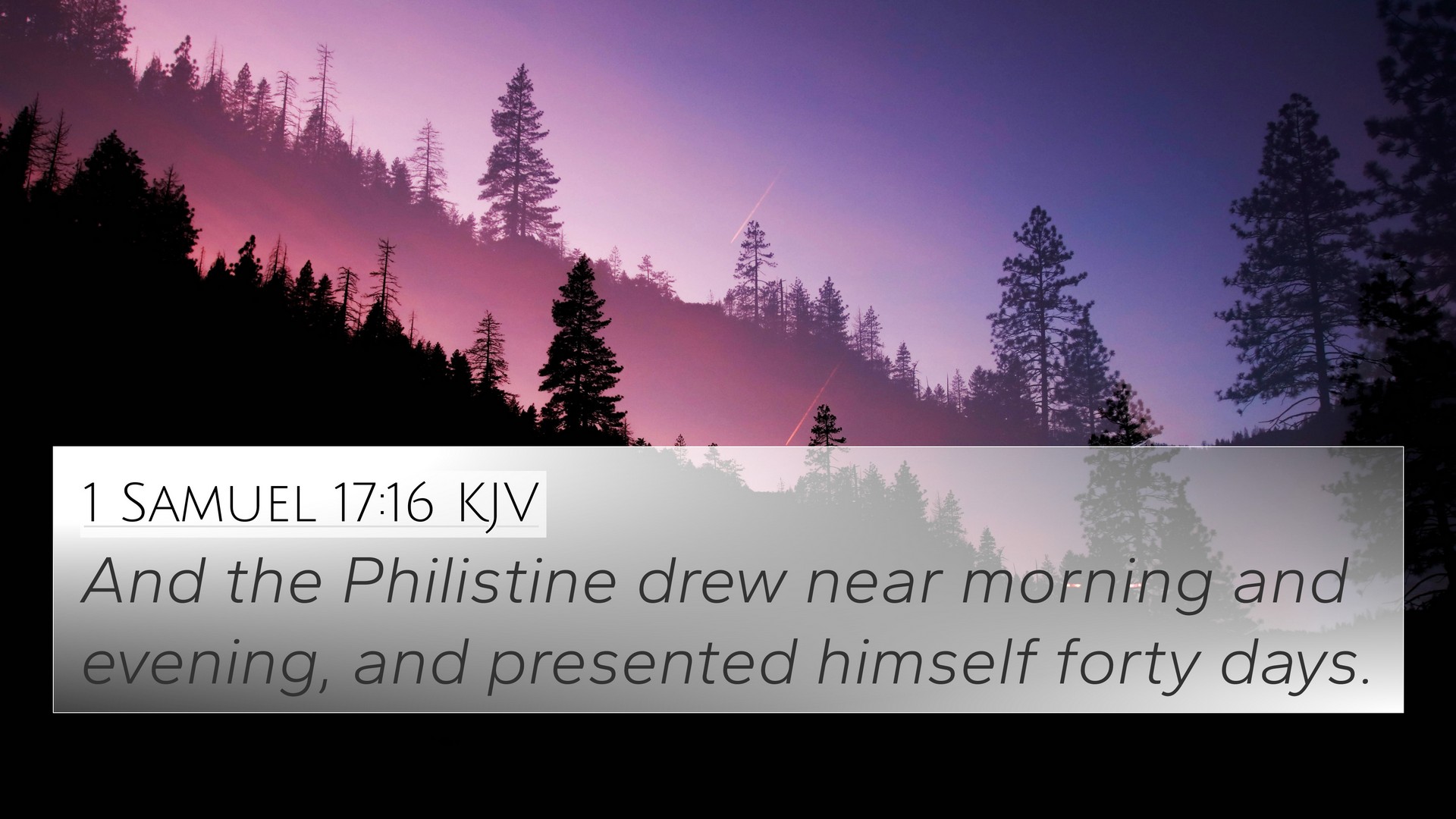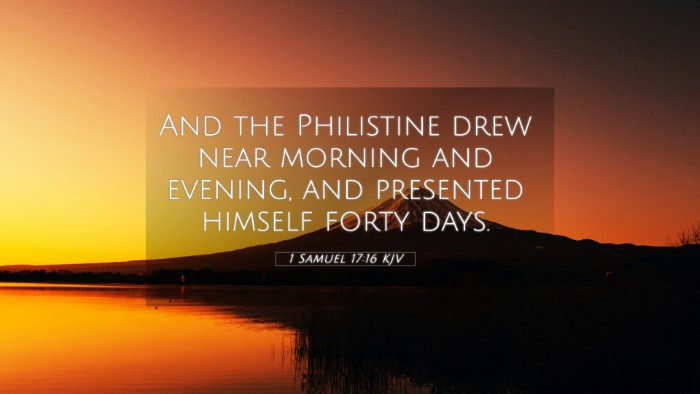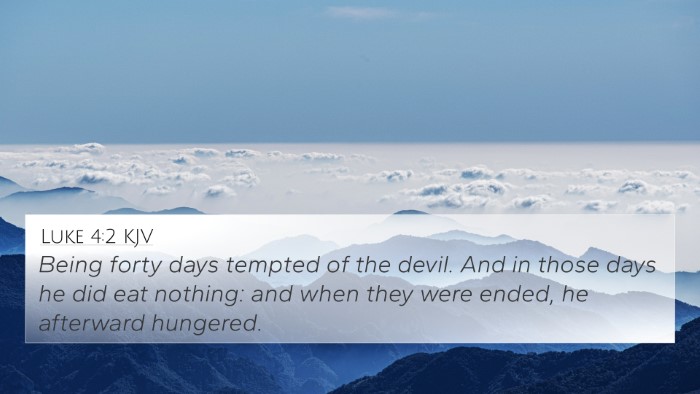Understanding 1 Samuel 17:16
Verse: "And the Philistine drew near morning and evening, and presented himself forty days." - 1 Samuel 17:16 (KJV)
Summary of Meaning
This verse takes place during a pivotal moment in the narrative of David and Goliath, illustrating the prolonged challenge posed by Goliath, a champion of the Philistines. His routine of taunting the Israelites over a span of forty days emphasizes the ongoing nature of the conflict and the psychological warfare being waged against the army of Israel. This scripture is significant, reflecting themes of fear, bravery, and divine intervention associated with David's eventual triumph.
Insights from Public Domain Commentaries
- Matthew Henry: He highlights that Goliath’s repeated taunts served to instill fear not only in the soldiers but also in King Saul, who was paralyzed by Goliath's defiance. The forty days symbolize a time of trial and testing for the Israelite army, demonstrating their lack of faith and the oppressive power of their enemy.
- Albert Barnes: Barnes points out that Goliath's daily challenges reflect a sense of dread among the Israelites. He notes the importance of persistence in evil’s challenges, showcasing how it can wear down the resolve of even the mightiest of men. The length of the challenge suggests that the Israelites' inability to respond is a critical failure in their trust in God's power.
- Adam Clarke: Clarke touches upon the spiritual implications of this verse, interpreting Goliath’s sustained intimidation as a prelude to God's subsequent demonstration of strength through David. He emphasizes that God often uses prolonged difficulties to set the stage for miraculous deliverance, which is a common thematic element throughout the scriptures.
Cross-Referenced Themes
This verse connects with various other biblical texts, highlighting the overarching themes of fear, divine intervention, and faith:
- Numbers 14:9: "Only rebel not ye against the LORD, neither fear ye the people of the land; for they are bread for us: their defence is departed from them, and the LORD is with us: fear them not." - This verse emphasizes trust in God's protection over fear of seemingly insurmountable foes.
- Psalm 27:1: "The LORD is my light and my salvation; whom shall I fear? The LORD is the strength of my life; of whom shall I be afraid?" - David, who would later face Goliath, expresses ultimate confidence in God amidst intimidation.
- 1 Samuel 10:24: Here, the people declare that Saul shall be their king, reflecting their choice of a human leader over reliance on divine providence, paralleling the fear exhibited toward Goliath.
- 1 Samuel 17:45: "Then said David to the Philistine, Thou comest to me with a sword, and with a spear, and with a shield: but I come to thee in the name of the LORD of hosts, the God of the armies of Israel, whom thou hast defied." - David’s response to Goliath underlines faith over fear in the face of daunting challenges.
- Romans 8:31: "What shall we then say to these things? If God be for us, who can be against us?" - This New Testament verse complements the theme by reinforcing God’s ultimate power against any adversary.
- 2 Corinthians 10:4: "For the weapons of our warfare are not carnal, but mighty through God to the pulling down of strong holds;" - This verse emphasizes spiritual warfare, connecting to the theme of facing formidable challenges with divine aid.
- Hebrews 11:33-34: Highlights the faith of those who conquered kingdoms and performed acts of righteousness, resonating with David's eventual victory over Goliath.
Comparative Analysis
The conflict exemplified in 1 Samuel 17:16 is not just a singular event but resonates across various biblical narratives. Goliath's challenge serves as a microcosm of larger spiritual battles faced by believers throughout biblical history.
Thematic Connections
The verse invites readers to reflect upon several profound theological themes:
- Faith vs. Fear: The ongoing fear experienced by Saul and the Israelite soldiers is contrasted with the eventual faith of David.
- God's Deliverance: The endurance of Goliath's threats can be seen as a precursor to God's deliverance through David's faith and action.
- Testing of Faith: The forty days serve as a period of testing, a common motif throughout scripture where God prepares His servants for greater trials.
Conclusion
1 Samuel 17:16 serves as a poignant reminder of the struggles that believers face in their faith journeys, while also illustrating God's ability to work through seemingly impossible situations. Through cross-referencing various scriptures, we gain a deeper understanding of the spiritual truths encapsulated in this verse, reflecting on how fear and faith are intertwined throughout the biblical narrative.
Further Study
For those looking to explore the connections further, tools like a Bible concordance and Bible cross-reference guides can enhance understanding.
Through cross-referencing Bible study methods, one can delve deeper into recognizing the interplay between various Bible texts and themes, fostering a richer understanding of God's Word.




